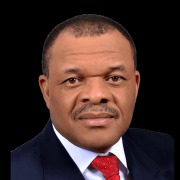What Turmoil in Ecowas Means for Nigeria and Regional Stability (8-9)

Nnamdi Obasi
Senior Adviser, Nigeria
The closure, which did little to reduce contraband, violated an ECOWAS agreement guaranteeing freedom of movement, in both letter and spirit, hurting the economies of nearby countries and sowing mistrust.
When Tinubu, in accepting the ECOWAS rotating chairmanship in July 2023, declared that “Nigeria is back”, it was an admission that the country had been largely absent from regional leadership. Yet Tinubu’s closeness to France, which many in Francophone West Africa view with deep suspicion, has exacerbated the trust deficit among Nigeria’s neighbours.
Luring the departees back into the ECOWAS fold – while a very tall order – is important for several reasons. A broken ECOWAS will erode decades of economic, political and security efforts in West Africa. Economically, though the three Sahelian countries represent only 17.4 per cent of the region’s population and 10 per cent of its $761 billion gross domestic product, their pullout will reduce ECOWAS’s market size. As the ECOWAS Commission indicated, the three countries’ exit might also halt projects worth more than $500 million the bloc has undertaken as well as another $321.6 million worth of projects being pursued by the region’s financial institutions. Politically, the trio’s departure could tempt other member states embroiled in disputes with the bloc to also quit; meanwhile, their estrangement from the bloc could prolong undemocratic rule in these countries and encourage military authorities in others, namely Guinea, to stall in restoring constitutional order. From a security standpoint, a lasting split will make regional multilateral and bilateral security cooperation in tackling common challenges much more difficult, if not impossible.
ECOWAS has said it will continue to look for a negotiated path forward, although the three Sahel states seem uninterested in talks. On 17 February, at the AU summit in Addis Ababa, Tinubu promised the breakaway countries that: “If you come to the table to discuss important matters in good faith, you will find Nigeria and ECOWAS already sitting there waiting to greet you as the brother that you are”. On 24 February, ECOWAS heads of state and the ECOWAS Commission reiterated their readiness to parley. The AU Commission has pledged to facilitate negotiations. These are welcome first steps, and although the three Sahel states have declared that their exit from ECOWAS is irreversible and shown no sign of readiness to come back into the fold, the regional bloc should persevere in its reconciliation efforts, making every responsible effort to create conditions that might encourage the three countries to respond in kind.
First, the Nigerian government, working closely with the ECOWAS Commission, should redouble diplomatic efforts to persuade the three countries to return to the negotiation table. It could do so by engaging credible non-state actors (traditional and religious leaders, eminent personalities including the ECOWAS Committee of the Wise, women leaders and civil society groups), as emissaries to the central Sahelian countries that withdrew from the bloc. Given its special historical relationship with Niamey and the price it would pay should the split endure, Nigeria should devote particular effort to healing its rift with Niger.



